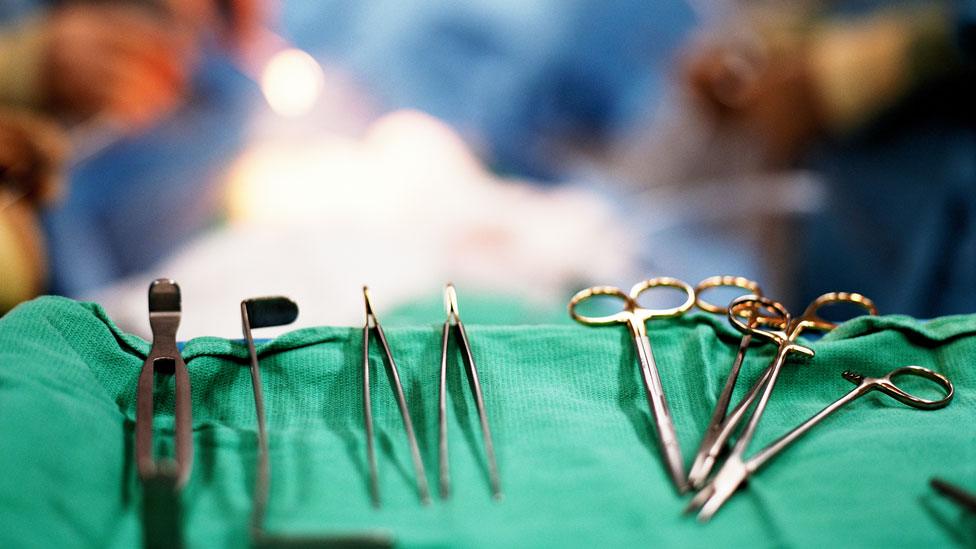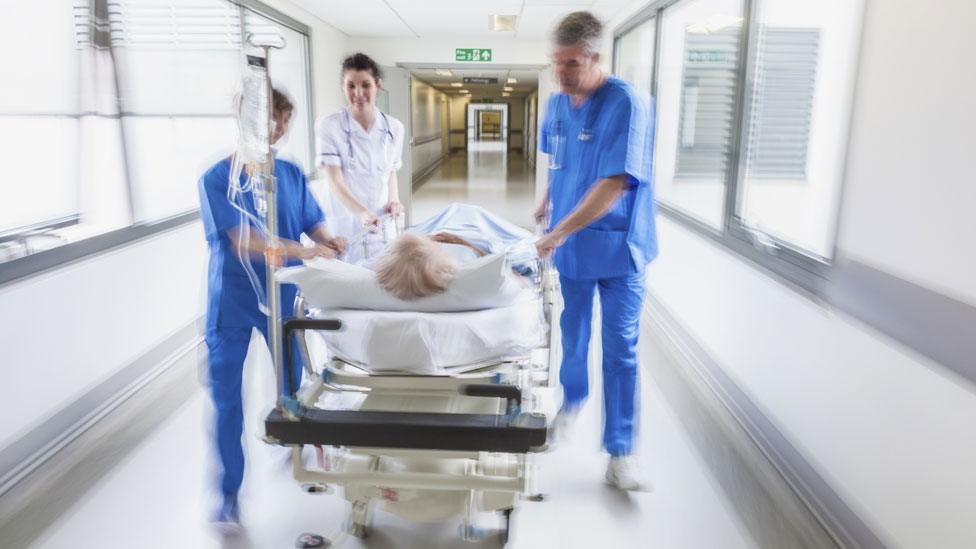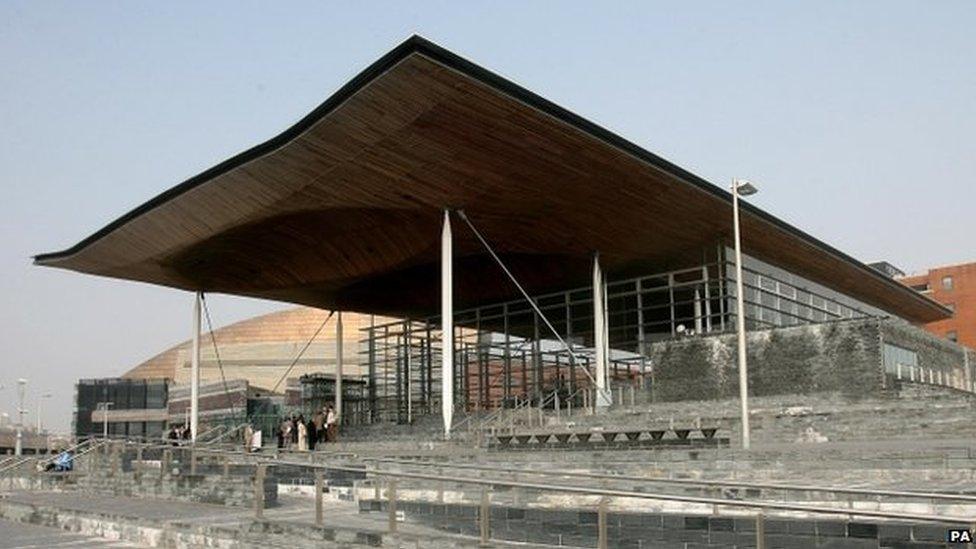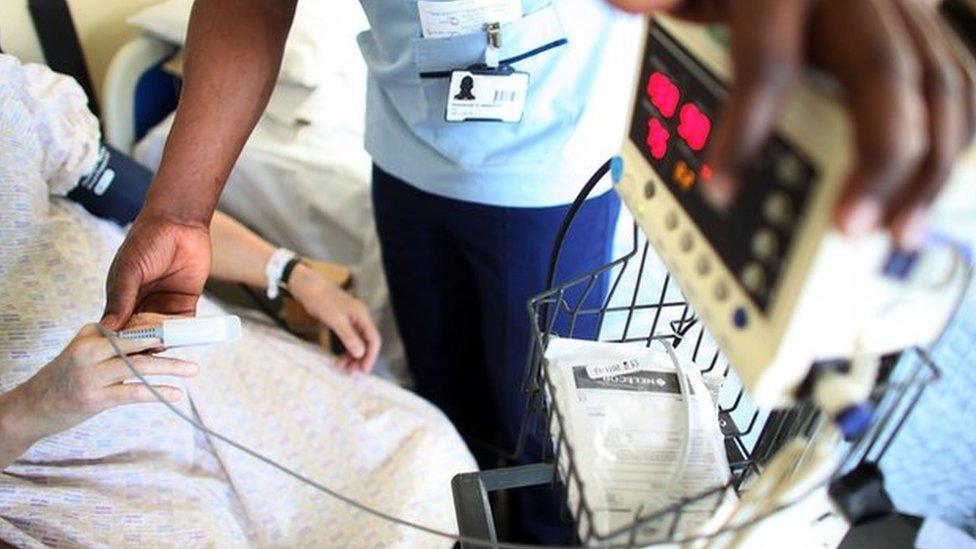Health manifestos - Plaid Cymru dissected
- Published

Health is arguably the most important issue for many voters at next week's Welsh Assembly election.
BBC Wales has asked some of the main medical and health organisations to give an examination to the parties' manifestos and give their critique of their policies.
Here is the dissection of the Plaid Cymru manifesto:, external


The Royal College of Physicians, external welcomed commitments to:
Introduce minimum pricing for alcohol
Introduce a new medicines and treatments fund
Invest in the medical workforce by recruiting more doctors
Recruit more Welsh domiciled students to medical schools in Wales
A national workforce plan for the NHS in Wales
However, it was concerned:
Large scale reorganisation of the NHS in Wales would come at a time when resources are already extremely over-stretched. Splitting primary and secondary care would be a step backwards.
The NHS in Wales already struggles to recruit. Far more detail is needed on where these doctors will be found.
A focus on cancer waiting times could penalise other specialties, including diabetes, stroke and heart disease, illnesses which also kill hundreds of thousands of people every year


The RCN, which represents 25,000 nurses in Wales, said the manifesto matched its own Time To Care campaign , externalpriorities in the following:
5,000 extra nurses with half allocated to community - the RCN said the party goes furthest with this pledge, with is "hugely important" and reflects its messages of the last few years
Guaranteed professional development for nurses
Extend Nurse Staffing Levels Act to community, mental health and children's units
Virtual ward for elderly people at home
Increase spending on mental health
Buurtzog self-management model of district nursing and talk about 'virtual wards' for the elderly at home


The BMA represents 8,000 doctors in Wales.
Like
We will recruit and train 1000 extra doctors for our Welsh NHS. In hard-to-recruit areas and specialisms we will offer financial incentives to new doctors.
We are pleased to see that Plaid Cymru recognise the need to take urgent action to recruit and retain doctors and that they are committing to working innovatively to do so. BMA Cymru Wales has put forward a number of ideas to attract doctors to Wales, financial incentives are included in this package and we are pleased Plaid is listening to the profession.
The medical workforce is at the heart of NHS Wales. The new government must take a whole-system strategic approach across primary, community, secondary and social care. Workforce planning must take into account the changing service demands and in particular the challenge of an ageing workforce. It will also be vital to ensure that high quality undergraduate education, postgraduate training, and continuous professional development remain a priority.
Dislike
The current seven local health boards will be replaced by a new Community NHS delivered through the new Regional Combined Authorities. One integrated inspection system will be created, independent of Government.
We would be strongly opposed to any further geographical-based restructuring or reorganising of the NHS in Wales. Previous reorganisations have led to significant upheaval and this has not necessarily led to greater accountability or improved service provision.


RCPCH is responsible for training and examining paediatricians and has more than 600 members in Wales.
It welcomed:
Commitments to tackle long waiting times for Child and Adolescent Mental Health services and ensure that transition to adult services are more robust and delivered in an age appropriate way to ensure that young people are ready - we have called for parity of esteem for child mental and physical health
A pledge to train and recruit extra doctors and nurses along with support for safe staffing legislation, particularly in terms of the commitment to extending the settings to which minimum safe staffing levels would apply to children's units
Support for increasing the number of 20mph zones, particularly around schools and where there is local demand - this is in line with our call that local authorities be encouraged to introduce 20mph limits in built up areas to help create safer environments for children to walk, cycle and play in
It is concerned:
There is little detail on the "one government minister" to deliver childcare and early years education policy. We have called for a Welsh Minister for Children to lead and take responsibility for policies affecting children, child rights and child health and would hope to work with any future Welsh Government on an overarching child health strategy
There is relatively little detail here on plans to reduce obesity among children and young people. While some measures (such as plans for active travel) could help, there is only one mention of obesity in the document and no overarching plan to take action on this crucial issue.
The other responses can be found here:
- Published29 April 2016

- Published4 April 2016

- Published4 April 2016

- Published22 April 2016

- Published3 May 2016

- Published1 March 2016
